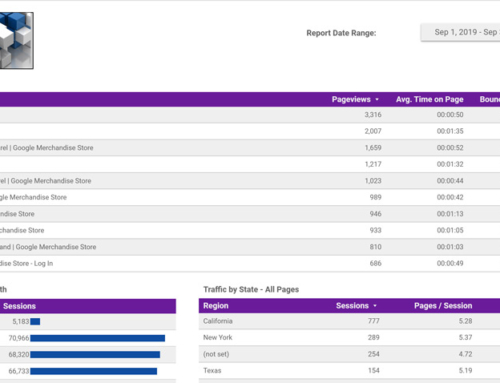The easy answer is “because everyone has a website” but that’s not a good enough answer, nor should it be. Everyone is talking about the latest social media platform. The idea that websites are dead frequently is chanted, but the same has been said about email for at least a decade. In this article, I’ll provide seven reasons your business needs to have a website.
1. Credibility
 Facebook, Twitter and Snapchat are all great communications tools, but the benefits are mostly for them. The more you share on their sites, the more information they gain to push ads to their members. This doesn’t help you much unless you’re paying for ad space.
Facebook, Twitter and Snapchat are all great communications tools, but the benefits are mostly for them. The more you share on their sites, the more information they gain to push ads to their members. This doesn’t help you much unless you’re paying for ad space.
Having a website helps build credibility by being the foundation for your messaging and helping to preserve brand authenticity. On social media platforms, your message and branding are blended with whatever else people like to share. Cat photos can be entertaining, but they can also be a distraction unless you provide products and services specifically for cats.
Even if all your business has traditionally been referral-based, a website can provide more accurate information to those referrals. A website can also help sway those referrals who may be on the fence by showing current content, which helps people know your business is alive and well. This is especially important during tough economic times.
2. Online Brochure
Most businesses have some sort of brochure that is static, whereas a website can be changed easily as business needs evolve. A website can supplement a print brochure by providing more detailed information and can be easily adjusted to address industry trends as well as respond to a competing business, service or product. Reap cost savings online over printed material.
3. Reach More People
The audience for print media tends to be mostly people you’ve met. Networking will always be a critical aspect of a successful business; however, it is very resource-intensive in terms of time, money and personal energy. Let’s face it. We all need a break now and then but with a good web host, your website can work for you 24x7x365 (366 on leap year). Your website is still working when you oversleep because of jet lag or the latest daylight savings time change. Additionally, a website with responsive design allows searchers to find your business anywhere an Internet connection is available. This applies to mobile phones, tablets, laptops and desktops as well as at work, while traveling, at home in the evening and beyond.
4. Customer Service and Support
If you can’t provide great customer service and support to your clients, someone else will. Websites provide many ways that can help you keep the competition on their toes.
The more people you interact with, the more you’ll find yourself answering the same question time after time. These frequently asked questions (FAQs) are great because it helps you identify your customers’ concerns, but repeatedly answering them is also resource-intensive.
A website can host these FAQs and serve as a self-help tool, enabling customers to find the answers themselves. Nobody likes to feel like they are asking a “dumb” question and FAQs show them they aren’t alone.
From an SEO perspective, FAQs solve the problem of giving Google what it wants, which is more information to help them better understand how to rank your business in search results. Most people who use Google ask a question and expect an answer. Only you can provide the best answer in relation to your business, product or service.
5. Contact!
Customers will learn about your business in many ways including in-person, word-of-mouth, print advertising, a website and through web searches. People will want to contact you and you must make it easy for them. Business cards are great for this, but people lose or throw away business cards. A website that follows SEO best practices enables people who lose your card to find you through Google searches. Once they get to your website, they should be provided with easy access to your contact information. If it isn’t in the header, they most likely will click on the Contact link in your website navigation.
Contact forms provide a way for customers to send you a message in a way that is easy to capture and turn into website content, maybe even more FAQs. The saying “you catch more flies with honey” applies to contact forms. Keep the contact form simple. The more information you ask for, the less likely a visitor will complete the contact form.
6. Online Ticketing Systems
A website can provide a place for you to host an online ticketing system. Customers can submit inquiries or service requests regarding products they own. They then can receive an automatically assigned service ticket number, confirmation email and future notifications. These service requests can be logged, tracked and analyzed to provide valuable intelligence to improve the customer service process. Online service requests can also be used as a source for FAQs or as content for other areas of your website such as blog topics.
7. Sharing is Caring
Have you ever seen something on Facebook, Twitter or Linkedin and wanted to share it with a colleague? If the time between when you first saw the social media post and the time your colleague mentioned a need for that information was more than a few hours, it’s likely difficult to find the post again. Having a website that’s easy to navigate and search can prevent this frustrating and embarrassing situation by leveraging search capabilities on your website.
So, now that you know why you need a website, it’s time to contact Tell Your Tale and experience customer service excellence!








